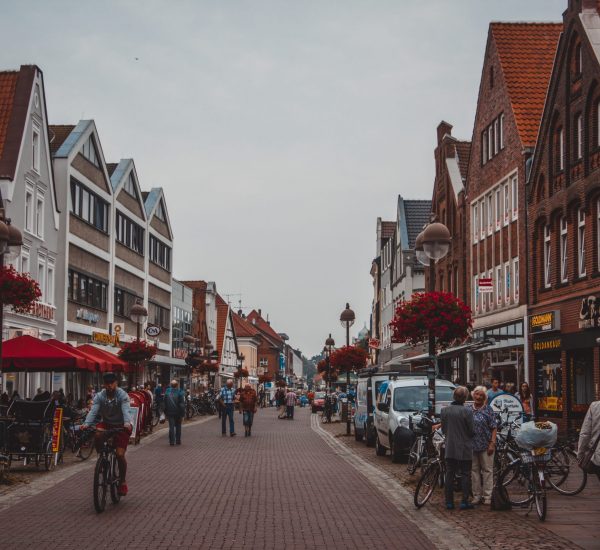The importance of location in business success is a topic that cannot simply be underestimated by entrepreneurs and business owners.
In addition to drawing a certain level of customer base, the location of a business is of utter importance when it comes to attracting the right kind of employee talent to help the business reach success.
The location of business also accommodates to forming and also maintaining an image and reputation for the business, as there are always neighborhoods of a city with a certain reputation, be it known for simple living or for luxury extravagance on the other hand.
Locating a business in a region of the city that echoes the brand and products can for sure affect the success of the company.
In this article, we will analyze and discuss surrounding why must a business location be important to an entrepreneur or a business owner, then we will disclose the importance of location in business success and growth, and lastly, we will briefly talk about factors playing a role in an entrepreneur’s decision making when choosing a business location.
The importance of location in business success
When on a quest to find a suitable location for a business, the first course of action is to define the potential needs and essentials required for the business.
Is this specific kind of business going to be relying on foot traffic? Is the business going to require natural or local resources for maintenance and growth?
What sorts of restrictions on zoning are going to have to be dealt with?
The best location for any business is one where the entrepreneur is able to minimize the expenses and at the same time, enables them to gain maximized profits.
Some businesses are something called “footloose”, this term indicates that the business operates in a way that is able to be set up almost anywhere and in any location.
Causes that divert business from a particular location are referred to as “Push” factors.
These factors include concepts like rising costs, increased competition, reduced demand, or inadequate networks of communication and transport.
On the other hand, those factors that actually “pull” businesses into a specific location, are lower labor rates, an increasing consumer base, government incentives, higher quality transport, and communication systems.
In a study conducted by economists, Vytautas Snieska, Ineta Zykiene, and Daiva Burksaitiene, the attractiveness of a business location also plays a vital role in the success of a business.
According to this study, particular significance is added to the business and investment situation when selecting new locations for developing a business.
In other words, conditions, variables, and circumstances that are established in conjunction with the appropriate business location are able to attract, maintain, or encourage the formation of new business and investment.
It should be stressed that the attractiveness of business development areas is influenced by the power of the location, the region itself (within its geographical, geological, infrastructural, technical, social, socio-economic, cultural environment, etc.) and the economic entities operating in that specific location.
Local authorities become the main developers, producers, and advertisers of a location (as a desirable place to establish and develop a business) in most instances.
Nevertheless, businessmen, self-employed people, and investors are knowledge seekers, researchers, and decision-makers, thus, they choose a location out of many that will provide competitive advantages over rivals in both the long-term and the short-term.
Therefore, there is a connection at close quarters between the attractiveness of the location for business development and investment.
For these reasons, the indicators of the attractiveness of a location for business development become the key strategic guidelines in the economic policy formulation process of a location.
Now let us dig a little bit more into the details of choosing a location for a business.
The location of a business is one of its most critical success factors.
The location has an even greater effect on micro-entrepreneurs, as these businesspeople are establishing and developing a small-scale business with less than nine employees.
For these small businesses, the importance of the location strategy is particularly significant because it influences whether or not enough income will be produced to support the company.
When addressing the topic of choosing a suitable business location, restaurants are conceivably the most ideal business to direct attention to.
Researchers that conduct investigations about restaurants, found that some areas of a city are more likely to attract customers than other neighborhoods.
When a customer comes back for another visit to the restaurant, it is safe to say that it is greatly caused by the location of that restaurant on top of other reasons that might have pulled them back.
Although even if the service standards are very high and also the food is of great quality, what attracts repeated visits from customers to a restaurant, in most parts, is mainly the location of the business.
This means that if the restaurant is situated in certain popular and high demand areas of the city, it is more likely to receive repeated visitors.
Important factors to consider when choosing a location for business
In the following paragraphs, we will look deeper into the necessary factors that are required to be taken into account when selecting the location of the business.
Each of the topics includes all-embracing explanations that can be concluded based on any specific business one might wish to establish.
1. Customers and Community
It is important to be aware of the surroundings when selecting a location for any sort of business.
Is the reputation and credibility of the neighborhood going to help improve the business and attract more customers?
Having said that, every entrepreneur must consider the demographics of their potential location when they rely on customers to visit the business.
In a place where the average householder is over 50, a business that appeals to young families would not potentially do well.
For these demographic data, check the United States Census information for the desired locations of business.
2. Competition – corresponding or opposing
If a business relies on support from the local community, then the competitive market is needed to be checked and analyzed.
In some situations, it is beneficiary to be close to several similar businesses because this vicinity draws a consumer group to the business area.
Although, if an entrepreneur needs the majority of market share, such as a grocery store or an after school program, they are going to want to choose a place where they are the primary service provider in that certain market segment.
3. Selecting a Space
After settling on a general area, an entrepreneur needs to decide on a space that will suit their business needs and fit into their budget.
For instance, one cannot operate without a kitchen if the goal is to open a café.
If they establish a warehouse, proper access is required.
Studies have realized that retail shops frequently find the sunny side of the street more attractive than the shadowy sides, which is why the rent can be much higher.
Another very important factor is the amount of traffic.
There’s a logical explanation of why Zara can be discovered on most traffic-heavy streets and corners, typically in the city center or in large shopping malls.
The sheer volume of people increases the likelihood of the shop being seen, receiving interest, and eventually getting a walk-in by a customer.
4. Labor Market
It’s important to consider the potential employees that a business may recruit in a certain area, depending on what kind of company it is going to be.
Besides labor, consideration of the materials required to create the possible product of the business is also of importance.
5. Brand Reputation
The location can for sure affect the image or the reputation that an entrepreneur envisions for their business to portray.
If they made a decision to establish a childcare facility in a high-crime, unsafe area, what would be thought of this business?
On the other hand, if a coffee shop is in the city’s upscale neighborhoods, it sends the vibe of prestige and exclusivity automatically.
When we return to the example of Zara, we can see that another aspect of their location strategy is that they always make an effort to be in the closest vicinity of more prestigious brands such as Prada or Gucci.
And the retail strategy for luxury brands like Prada is to try to stay as far away as possible from brands such as Zara.
Conclusion
Now that we have discussed the importance of location in business success and growth, it is up to conducting comprehensive market research based on the needs and goals of the business, to help identify locations of a city where a business will flourish.





